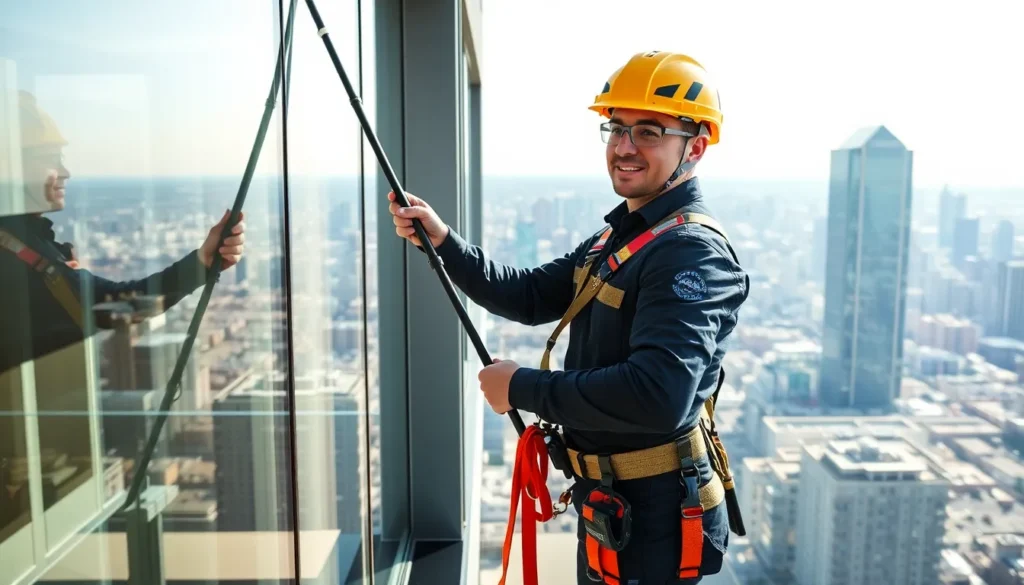Ever walked into a hotel lobby with a jaw-dropping shine? Or marveled at how a workspace seemed to magically tidy itself overnight? Spoiler alert: it’s not magic: it’s professional cleaning staff doing their thing. Beyond just mops and buckets, these unsung heroes play pivotal roles in maintaining cleanliness and hygiene. Let’s jump into their world, where buckets are a tool of the trade, and every swipe of a microfiber cloth counts as an act of magic.
Table of Contents
ToggleThe Importance of Professional Cleaning Staff

When it comes to maintaining a healthy environment, professional cleaning staff are paramount. These individuals aren’t just here to sweep floors: they are the guardians of cleanliness, ensuring that homes, offices, and public spaces remain clean and inviting.
Imagine entering a workplace that’s clean, organized, and smells fresh. The air feels lighter, stress levels lower, and productivity often spikes. That’s a direct result of diligent cleaning staff working behind the scenes. They help prevent the spread of germs, reduce allergens, and maintain a safe environment for everyone. In industries such as healthcare, the role becomes even more critical, as cleanliness is key to patient safety.
Without professional cleaning staff, we may find ourselves in environments that are not only unattractive but also hazardous. The costs of neglecting cleanliness can be steep, including health issues, decreased productivity, and an overall decline in morale. So, these professionals significantly contribute to creating a welcoming atmosphere that fosters well-being.
Key Roles in a Cleaning Team
Cleaning teams typically consist of various roles, each contributing unique skills to maintain standards.
Housekeeping Staff
Housekeeping is often the backbone of any cleaning staff. Responsible for routine cleaning tasks in hotels and residential settings, they ensure that rooms are spotless and sanitized, making guests feel comfortable and secure.
Janitorial Staff
In commercial buildings, janitorial staff are essential. They manage larger spaces and often work during off-hours to complete their duties without disrupting daily operations. From emptying trash bins to deep cleaning carpets, their contribution to maintaining a clean office space cannot be overstated.
Specialized Cleaners
Some cleaning tasks require specific expertise. This includes technicians who handle the cleaning and maintenance of sensitive environments like laboratories or those qualified to clean hazardous materials. These specialized roles require training and certification to ensure safety and compliance with regulations.
Supervisory Roles
To ensure that every task is done effectively, supervisory roles are necessary. Supervisors oversee cleaning staff, manage schedules, and address any issues that arise. They often serve as the bridge between the cleaning teams and management, advocating for resources and ensuring quality standards are upheld.
Skills and Qualifications Needed for Cleaning Staff
For those interested in becoming part of a cleaning team, certain skills and qualifications can set candidates apart.
Attention to Detail
Elite cleaning staff possess an exceptional attention to detail. They can spot the dust in the corners or the smudge on a mirror that might escape the untrained eye.
Time Management
In many cases, cleaning staff must juggle multiple tasks simultaneously. Being able to prioritize effectively ensures that everything gets done without compromising quality.
Physical Stamina
Cleaning can be physically demanding. Staff members often need to lift heavy objects, climb ladders, or remain on their feet for extended periods. Hence, physical fitness plays a crucial role in this job.
Communication Skills
Effective communication is essential, especially in team settings. Whether discussing a cleaning plan with a supervisor or explaining cleaning protocols to a new employee, clear communication is vital.
Effective Training and Onboarding Practices
Finding the right talent is merely the first step: effective training is essential to ensure that each cleaning staff member performs their duties to the best of their ability.
Orientation Programs
New employees should undergo orientation that covers company policies, safety regulations, and equipment training. A thorough orientation helps prevent accidents and ensures everyone is on the same page.
Ongoing Training
Regular training sessions can keep staff updated on new cleaning techniques or products. It also ensures compliance with health regulations, which can change over time.
Mentorship
Pairing new hires with experienced staff can enhance learning. Mentorship provides guidance and fosters a supportive community that encourages skill development.
Challenges Faced by Cleaning Staff
Even though cleaning staff play a vital role, they often face challenges that can impact their work.
Underappreciation
Even though their importance, cleaning staff can sometimes feel undervalued. Their work often goes unnoticed until something goes wrong. This lack of recognition can be demotivating and impact job satisfaction.
Safety Concerns
Cleaning staff frequently work with potentially hazardous materials. Proper training and precautions are essential, yet accidents still happen, highlighting the need for ongoing safety education.
High Turnover Rates
The cleaning industry often experiences high turnover. This not only affects continuity of service but also places additional burdens on existing staff, leading to burnout. Employers need to create a supportive atmosphere to retain talent.
Innovations in Cleaning Technology
The cleaning industry is not static: it’s evolving. Innovations in cleaning technology are making the job more efficient and safer.
Automated Cleaning Devices
Robotic vacuums and floor scrubbers have changed the landscape. These machines can navigate spaces autonomously, allowing human staff to focus on more complex tasks.
Eco-Friendly Cleaning Products
As sustainability becomes more critical, zero-waste and eco-friendly cleaning products are gaining popularity. This not only helps the planet but also provides safer options for users and reduces health risks associated with harsh chemicals.
Digital Management Tools
New software tools allow cleaning teams to track inventory, manage schedules, and monitor work quality more effectively. Digitization means that managers can respond quickly to any issues, providing better service at every level.









